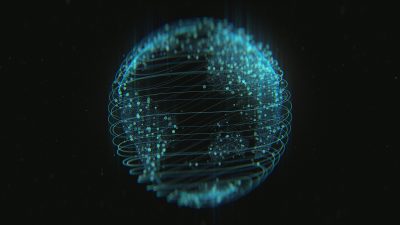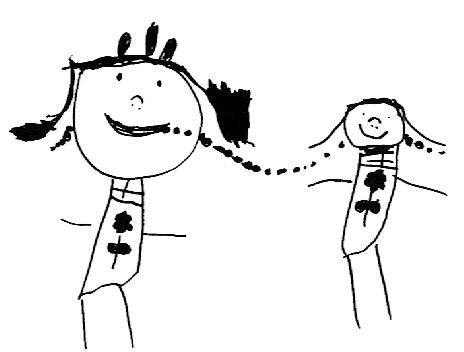
Previous blogs have mentioned the public statement made by REAIE in response to the global call for respectful relationships. This declaration was cognizant that education required a political commitment and was collaboratively developed as an expression of democracy, to “stand in solidarity with Australia’s First Peoples” and advocate to uphold human rights for all citizens’ (REAIE, 2020). The REAIE upcoming webinar on Monday 27 July will explore the concept of ‘otherness’ drawing on this statement.
The philosophy of the Other was at the heart of the work of Emmanuel Levinas (1906-1995). Levinas’ work focused on ethics and more specifically on what he called the “ethics of an encounter” where he used the metaphor of ‘grasping’ to try and explain ‘otherness’. This definition of Otherness occurs when one tries to grasp the Other and make them into the Same. The desire for Sameness is present in the language of universality, certainty and mastery. It is echoed in pedagogical theories based on scientific knowledge. Developmentally Appropriate Practice, a dominant Western pedagogical discourse in early childhood education might be one example? Levinas suggests that the process of ‘othering’ and a simultaneous desire for Sameness leads to actions that occur under the guise of ‘assimilation’, concealed in a quest for power. When someone, be it an individual or an organisation tries to banish ‘Otherness’, “uncertainty and ambivalence are eroded, making way for predictability and order” (Dahlberg and Moss, 2005). Although Othering is not just about racism, it is responsible for both racism and oppression. The concept of Othering should reside in our consciousness when we reflect on Aboriginal and Torres Strait Islander peoples’ history and everyday life in Australia.
Dahlberg and Moss remind us to ‘”treat [ing[ the alterity (difference) of the other with respect, rather than trying to make the other the same” (Dahlberg and Moss, 2005, p.2). ‘Othering’ and the quest for Sameness runs counter to the agenda of the National Quality Framework where the values of welcome, complexity, diversity and acceptance of Otherness is embedded. The five interconnected principles of the Early Years Learning Framework (EYLF), Secure, Respectful and Reciprocal Relationships, Partnerships, High Expectations and Equity, Respect for Diversity and Ongoing Learning and Reflective Practice, guide educators in Australia to reject othering and to embrace all children, families and colleagues with attitudes of inclusion and acceptance.
Sergio Spaggiari from Reggio Emilia said that “Encountering differences is probably one of the strongest aspects of contemporary life. Accepting, respecting and valuing the differences in others is a great ethical choice, which is possible for every modern person. Differences are not a problem that we annul or eliminate. They are a resource and an opportunity” (Spaggiari, 2004, p.4). Valuing difference and diversity is a choice that influences pedagogy. If we believe that children are different and unique, then we need more coherent strategies than the strategies and pedagogy that do not value difference. The pedagogies that try to eliminate the differences amongst children, use strategies where ‘otherness’ breeds and lives; where Sameness is encouraged. We can see this choice and value in pedagogies of transmission or in curriculum strategies that are reductive and simplified; in pedagogies and curriculum where creativity is not valued and in curriculums of templates and Sameness.
Loris Malaguzzi’s work was characterised by his commitment to the topic of justice between people, and he believed that education is always a political discourse. Malaguzzi would say, “Educating is a permanent process…. ” (Hoyuelos, 2013 p.23) “Because there are lots of different ideas and different answers, many of them conflicting because different people will have different positions, views and perspectives” (Pacini-Ketchabaw & Moss, 2020 p.100). Malaguzzi was opposed to, “a society composed of castes and sects and a culture cut into slices, incapable and unwilling to begin the difficult art of interdisciplinarity or trandisciplinarity” (Cagliari et al., 2016, p.367). He said these two concepts, of [interdisciplinarity or trandisciplinarity] were the “keys to understanding the world” (Cagliari et al., 2016, p.367). These concepts align with his image of the world, which he seems to have adapted from ecological perspectives; that was, the world as a network.
His vision was of a “world, not made up of co-existing islands, and separate parts, of distant unique languages, but a world held in a web. Islands that are separate, but islands that belong to a great archipelago, to a great web. Even when we cannot see it, even when we think it does not exist, or that it is not there, the interdependence is there” (Loris Malaguzzi, quoted by Jane McCall, personal notes, 2017).
COVID-19, 2020 is a contemporary context of difference. It is a new context that may support ‘otherness’ to flourish as we are urged not to trust the Other, we are subject to new health laws and recommendations that Other and the country has been divided geographically to keep Others out. We have to reflect on this contemporary world, a world that is different from the past and ‘retrain our eyes’; to see it as separate parts, but a world held in a web. We must be determined and resolute to reflect on if and how we Other and remember that we live in a world of difference and diversity. This diversity should be celebrated as we strive for a utopian world where, ‘othering’ and ‘otherness’ is simply not tolerated.
Perhaps these perspectives will disrupt your thinking and can be, as Malaguzzi suggested, “one of the many itineraries for orienting our walking together” (Cagliari et al., 2016, p.106).
© Reggio Emilia Australia Information Exchange. (Volume 2, No. 2).
To quote this blog, please use the following referencing citation.
Reggio Emilia Australia Information Exchange (REAIE), (2020). Orienting Otherness. REAIE Blogs, Volume 2, No. 2.
References:
Cagliari, P., Castegnetti, M., Giudici, C., Rinaldi, C., Vecchi, V., Moss, P. (2016). Loris Malaguzzi and the schools of Reggio Emilia: A selection of his writings and speeches 1945-1993. London, England: Routledge.
Hoyuelos. A. (2013. The ethics in Loris Malaguzzi’s philosophy. Reykjavik. Isalda.
Pacini-Ketchabaw, V. Moss, P. (2020). Early Childhood Pedagogy: Veronica Pacini-Ketchabaw Interviews Peter Moss. Journal of Childhood Studies, Vol 45, No. 2.
Spaggiari, S. (2004). The path toward knowledge: The Social, Political and Cultural Context of the Reggio Municipal Infant-Toddler Centre and Preschool Experience. Innovations, Vol11, No.2.
The Navigating Otherness webinar is available for on-demand viewing. Please click here to purchase a copy.

